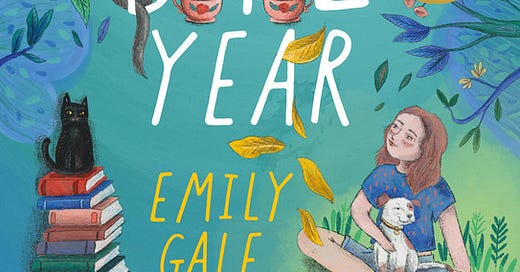If only I’d made just five mistakes. To recap: #1 I Subbed Before I Was Ready, #2 I Gave My Work Away, #3 I Wrote The Book They Wanted
Acorns
I’ve been taking my sweet time to reveal my five mistakes. It was almost a year ago that I conceived of the series, but this kind of confessional is both good and bad for me: good because I store mistakes like a hibernating squirrel, bad because this kind of writing makes me feel like I’ve locked myself out of the house in my underwear.
I want this series to be complete by the end of the year. I’m a big New Year New Me person — hell, I’m a big New Morning New Me person, New Coat New Me, New Brand of Herbal Tea New Me, I’m incorrigible. The list of five has sat with me for months and creatively it’s time to chop-chop. I can always jimmy a window and climb back in.
1667 Words a Day
I expect that everyone I’m writing to knows that NaNoWriMo is National Novel Writing Month. I didn’t until 2006; it began in 1999. Side note: lately, there have been distressing problems in the NaNoWriMo community, which I know very little about because I’ve never taken part in the forums. If you’re interested in that side of things, here’s one source of information about what’s been going on: NaNoWriMo Moderator Accused of Child Exploitation
For me, it’s simply been a case of: It’s November / I will write 1667 words a day / outside of my family, who will notice that the dinner and laundry provider is now wearing headphones a lot and pointing angrily at the toaster three times a day when they say they’re hungry, no one else will know that I’m doing it.
I’ve attempted NaNoWriMo three times. And I want to make it clear that I’m not writing this to discourage people from “write a novel quickly” challenges. I dislike the snobbery I witnessed in the early NaNoWriMo days, that “no one who is serious about novels would consider rushing them” attitude. The first time I did it, I really needed it.
In November 2006 I had a toddler, I was eight months pregnant, could hardly walk because of something called symphysis pubis dysfunction (fun to say after a couple of gins), and I’d been dumped by my literary agent. NaNoWriMo was my emotional comeback: you are not going to let that agent, this pregnancy, or being a full-time parent of two, stop you from writing.
My first time was a happy failure: 28,000 words in a month. A miracle. I stopped writing to give birth on our nice Persian rug, focussed on the new baby and the toe-curling breastfeeding, and restarted the challenge on 500 words a day: every evening, before East Enders, with my baby next to me and my loquacious toddler tucked up asleep. That manuscript became my first YA novel — for context, published three and a bit years after NaNoWriMo.
The second time I did it was in 2011 and relates to Mistake #3 I Wrote The Book They Wanted. A year after my first publisher had not only rejected a second novel but also suggested that I write a sequel to the first (which I didn’t want to do), and mere moments later decided they didn’t want me to do that either (cheers!), I got the urge to write that sequel. Who for? No one. They didn’t want it and I understood that no other publisher would. But I had the urge. That time, I reached 50,000 words, read it through once, thought it wasn’t too bad, put the file in a desktop folder and put that desktop folder into another desktop folder: the computer equivalent of under the bed.
This Is Going To Hurt
It’s my third NaNoWriMo, November 2020, that taught me the hardest lesson about my creative process and how my brain works when I’m in a challenge.
I had no reason to do NaNoWriMo other than wanting a hit of dopamine for completing something difficult. My children were low maintenance, I had a freelance career, I lived in one of the lockdown capitals of the world and was swimming in spare time. I’d thought of a new idea for a middle-grade novel and the mantra I wanted to adhere to was Keep It Simple. Although I’m wary of taking reviews to heart, I’ve been haunted by the criticism that my books are complicated. This time, I thought, I’m not going to plot like a woman cramming everything she owns into a small suitcase.
But with challenges I have no ability to be sensible. Technically, this makes me good at them, but I suffer as a result. Say I’m starting a new exercise challenge (New Exercise Challenge New Me) and some heroically fit woman on YouTube is talking me through a punishing routine involving weights, planks, crunches, lunges, all of those ghastly things. She’ll say, “Do it at your own pace! Breathe!” And I’ll think: “I’ll do it at your exact pace, even though our bodies bear no resemblance. Breathing is for wimps.”
And then I can’t move for days.
With this NaNoWriMo book, I had a simple idea and it started well. The voice, the setting, the heart-soaring hope. That first week, I thought, ‘Writing novels is easy now, guess I finally got good.’ But a few thousand words in, I started to panic. It was getting harder to reach 1667 words a day — and I couldn’t not reach 1667 words a day —I started to strive for story. I forged ahead, veering off the main track into dark paths that could be leading anywhere, ignoring the voice in my head saying: Go back, this isn’t the way.
Eventually, I went so far down the dark paths that there was no voice. But I had 50,000 words! I’d reached my destination! Surely this was a normal case of getting that “shitty first draft” down. Words on the page to play with. Isn’t that The Advice?
The Parasite
What I didn’t realise, and wouldn’t for months, is that I’d written two novels. In striving to meet the word count, my brain had conjured up a whole other novel’s worth of ideas and tangled them up. Tangled them so much that I couldn’t tell it was two. The challenge now would be: which novel was The One and which was the parasite? First, I had to accept it.
I gave The Mess to a friend who writes beautifully streamlined, impactful novels. She was kind and said that it seemed impossible that I’d made such a complex story actually make sense for a middle-grade reader, that it was deceptively readable, but this story strand, and this this and this character, could all go.
Even after reading her convincing notes, I struggled to believe that there’d be any novel left if I removed so much — despite everything I know about editing, in my head those were still 50,000 hard-won words, a storyline I’d spent many hours researching, my dear characters, backstory I’d sweated over. But she was right, and I knew that the only solution was to start again with a blank page.
Many more months later, I had my story, The Goodbye Year. (The parasite story, I found, couldn’t survive on its own.)
Speeding up the process works for some stories, for some writers, and at certain times in our lives. But now that I understand my story brain, I set my own speed limit.
Thank you for reading Voracious.
In case you missed it, this month’s retro-read was The Midnight Kittens by Dodie Smith.





